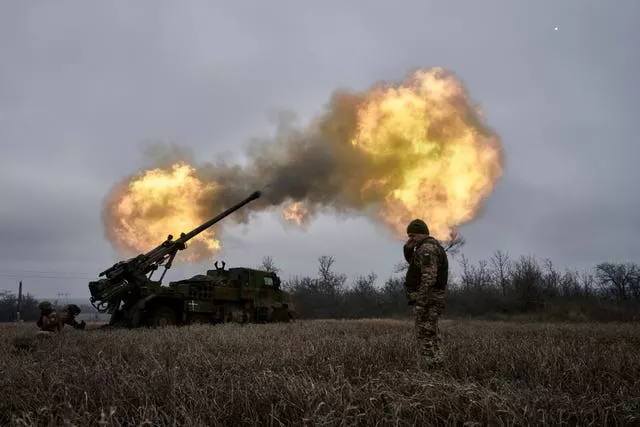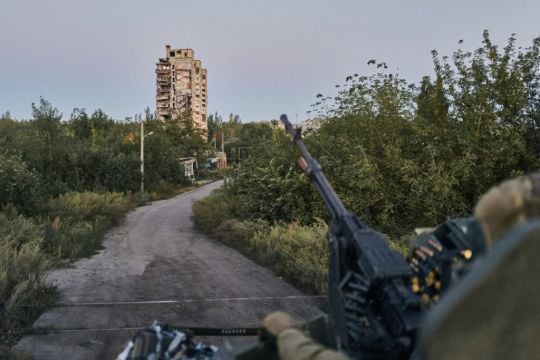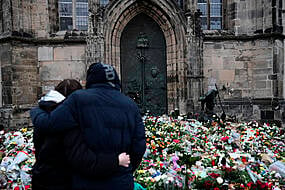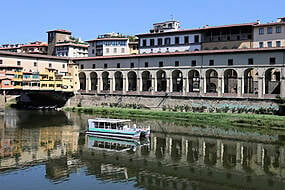Ukraine’s military chief said early on Saturday that he is withdrawing troops from Avdiivka in eastern Ukraine, where they have battled a Russian assault for four months.
The timing is critical as Russia is looking for a morale boost ahead of the second anniversary on February 24 of Moscow’s full-scale invasion of Ukraine and the March presidential election in Russia.
In a short statement posted on Facebook early on Saturday, Ukrainian commander Colonel General Oleksandr Syrskyi said he had made the decision to avoid encirclement and “preserve the lives and health of servicemen”.
The commander-in-chief added that troops were moving to “more favorable lines”.

The statement said: “Our soldiers performed their military duty with dignity, did everything possible to destroy the best Russian military units, inflicted significant losses on the enemy in terms of manpower and equipment.
“We are taking measures to stabilize the situation and maintain our positions.”
The withdrawal came a day after Ukrainian President Volodymyr Zelensky on Friday made another trip to western Europe, hoping to press his country’s Western allies to keep providing military support.
It was Col Gen Syrskyi’s first major test since being appointed as Ukraine’s new army chief last week.
In his previous position as commander of Ukraine’s ground forces, he faced criticism for holding on to the city of Bakhmut for nine months, a siege that became the war’s longest and bloodiest battle and cost Ukraine dearly, but also served to sap Russia’s forces.
In recent days, reports emerged that Ukrainian troops in Avdiivka faced a deteriorating situation.
Rodion Kudriashov, deputy commander of the 3rd Assault Brigade, said on Friday that Ukrainian troops were still holding out against the onslaught of about 15,000 Russian soldiers, but he expected the situation would “soon become critical”.
“The enemy is trying to penetrate our defence and in some places to bypass our positions,” he told The Associated Press.
The 3rd Brigade said on its social media account on Friday that its soldiers were at the huge Avdiivka Coke Plant.
Russian warplanes have been dropping about 60 bombs a day, relentlessly shelling the area and launching assaults with armour and infantry, the brigade said.
A video showed dense black smoke over the factory, said to be caused by burning fuel oil reservoirs. The post said: “Poisonous smog spreads all over the plant.”
Russian media reported the Kremlin’s forces were making extensive use of plane-launched glide bombs, which fly at a shallower angle, to batter Ukrainian positions.

White House national security spokesman John Kirby said on Thursday that Russian forces were beginning to overwhelm Ukrainian defences in the eastern city.
He said Avdiivka is at risk of falling to Russia, a development he blamed “in very large part” on the fact that Ukrainian forces are running out of artillery ammunition.
The United States is Ukraine’s biggest single supporter but some 60 billion dollars (£47.4 billion) for Kyiv is being held up by political disagreements among American lawmakers.
Heavily fortified with a web of tunnels and concrete fortifications, Avdiivka lies in the northern suburbs of Donetsk, a city in a region of the same name that Russian forces partially occupy.
Capturing Avdiivka could be a timely boost for Moscow and serve as a possible springboard for Russia to drive deeper into the region.
Fewer than 1,000 people remain in the city, according to the Donetsk regional governor, Vadym Filashkin. The city, with a pre-war population of about 31,000, is today a bombed-out shell of what it once was.
Aerial footage of Avdiivka obtained by The Associated Press last December showed an apocalyptic scene and hinted at Russia’s staggering losses, with the bodies of about 150 soldiers — most wearing Russian uniforms — lying scattered along tree lines where they sought cover.
However, the Institute for the Study of War, a Washington think tank, said on Thursday that taking Avdiivka would be more of a symbolic win for the Kremlin and would not bring significant changes to the 1,500-kilometre (930-mile) front line that has barely budged in recent months.
“The potential Russian capture of Avdiivka would not be operationally significant and would likely only offer the Kremlin immediate informational and political victories,” the institute said in an assessment.
“Russian forces would be highly unlikely to make rapid operationally significant advances from Avdiivka if they captured the settlement, and the potential Russian capture of Avdiivka at most would set conditions for further limited tactical gains.”







